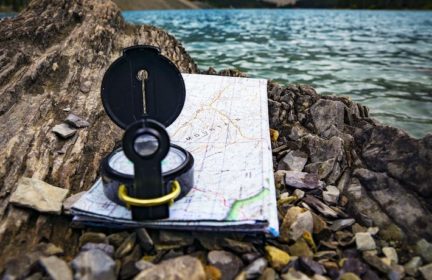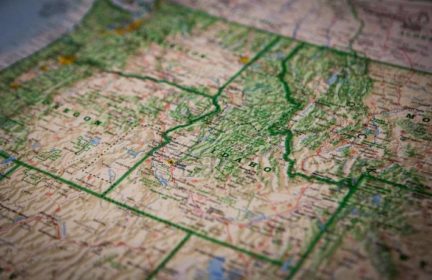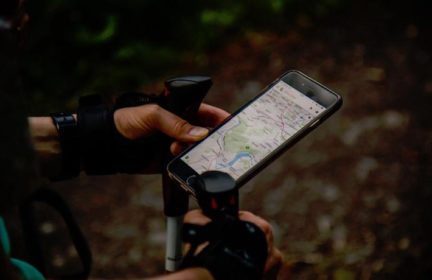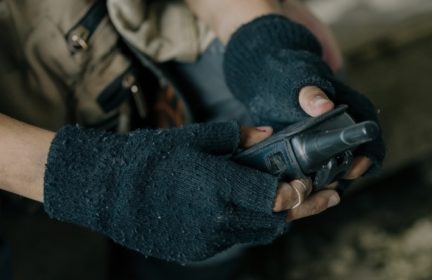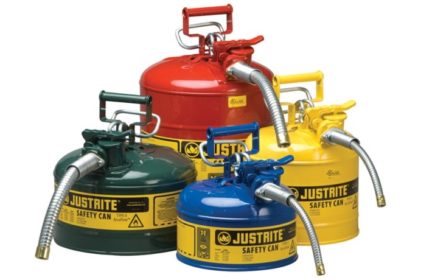Had a road trip – felt very unprepared
My wife and I recently returned from a road trip to Door County WI, where we both lost cellular service even though we were supposed to have it according to the “service maps”.
Now, I thought that I was fully prepared for this trip. I had packed my car go-bag, extra tools, batteries, everything. But I truly didn’t think about losing cell service in one of the most popular vacation destinations.
I had also packed my Yaesu HT, but we we were driving north on the peninsula in the dark at 11pm, watching our headlights reflect back the eyeballs on deer just waiting to jump the ditch and smash into our car, I had a very sinking feeling in my stomach. I realized that my HT was mostly prepped for “bugging in” because I had only programmed the repeaters local to my house. I also regretted not having something stronger than a 5W HT available.
Luckily nothing happened and we had a great trip, but I’ll always remember that pit in my stomach and I’ll work towards never having that happen again. It did get my thinking, though, about the best way to prep for trips in the future. Obviously I should plan on programming repeaters that are along my trip’s route. But what else? I thought about either:
1. Buying a linear amp and a car-mount antenna to get ~40W of output with my HT, or,
2. Buying a dedicated 2M mobile unit for my car, or,
3. Creating a “travel pack” for my ICOM 7100 (all-mode radio) so that when I go on long trips, I just take the larger ICOM with me. Something like building a battery box and just having the ICOM ready to leave the house at any time.
What would you all think?
-
Comments (17)
-
Molly N. 😆 - October 25, 2021
Along with a paper map, I have an old 2005 GPS unit in my car 🚗 just in case I was out of service and needed help navigating. But that doesn’t help with your ability to communicate and contact help if you were stranded. I’m not familiar with radios so I don’t have any advice on that.
Flares and strobing lights are helpful to mark your location and signal in the dark.
That’s good that you were prepared in many other ways with your car go bag, batteries, and more.
-
J Brooks - October 25, 2021
Good point on the paper map! I forgot to mention that I had packed my 2015 Rand McNally Atlas. Sure, it’s old, but I knew that it would be good enough in a pinch.
I was most worried about getting a flat tire in a remote area, so I had also packed my own small floor jack (don’t trust those scissor jacks) and an extra set of tools, plus a small tire inflator. Thankfully didn’t eed those!
-
-
Shaun - October 25, 2021
JBrooks,
I don’t have the experience you have with radios but if you were injured on your trip would your wife be able to use your radio gear to request assistance?
Have you considered a 4G signal booster like those at wilsonsignalbooster.com.
I have used their devices at work to build network connectivity and eliminate contention for problems we faced outdoors. Cellphone/WLAN signal boosting has come a long way.
Vehicle kits run $200-$500.
-
Bob - October 25, 2021
Good afternoon J. Brooks,
My view is that you are placing too much emphasis on communications.
The communications channels have 2 paths:
1. You lose all communications. The reason(s) for loss is not relevant.
2. You have communications but other priorities eclipe your emergency.
I’d focus more on quality food, a way to make hot drinks and med supplies.
I’d also recommend you augment your gear with a strobe light like Molly mentioned. If that flat tire occurs – concurrent with you having some injuries during the tire event – you’d still be stuck on the side of the road. At some level of frequency, the roads are patrolled. The strobe will assist.
-
JennyWren - October 25, 2021
What Bob said.
In my youth, I travelled all over UK and Europe without any form of comms at all, (this was pre mobile phone). I did have just about every conceivable item I might need to get me out of a jam, though I rarely used it. I do recall using a can of tyre weld somewhere in the Pyrenees when I had a puncture on my motorbike.
Even now I don’t rely on my phone, my son calls it my ‘not very mobile phone’ as I only carry it for trips and the journey to work.
What I’m badly saying is instead of relying on comms, make sure you have the where-with-all to get yourself out of trouble or to make your wait for rescue comfortable rather than rely on a piece of technology that could (and did) fail you.
I suppose it could be a generational thing. So please accept my apologies if I’m sounding a bit preachy.
-
Ess Dub - November 9, 2021
I agree with this sentiment. Instead of spending my effort bolstering my communications, I would see this as an opportunity to flesh out my car kit.
Also… driving in the dark in rural, unfamiliar areas is nerve-wracking, even without the fear of being unprepared. I hope, J Brooks, you’re cutting yourself a little slack there―of course you want to be more prepared for the future, but also, it makes sense that you’d be on-edge given those circumstances.
-
-
Robert LarsonContributor - October 25, 2021
I’m with you J Brooks. I feel naked when I don’t have comms even in a developed city and like to be able to reach help if I ever needed it.
Downloading the app Repeaterbook is nice to show you local repeaters. I plug in repeaters that I will be passing along my road trip route using the CHIRP software and save that profile so I can flash it to my radio whenever I go back to that location like when visiting family every holiday season.
Definitely get a car mount antenna, they are cheap and much better than the one your radio came with. They also allow you to talk on the radio while safely inside your vehicle which is nice during rain or snow.
A mobile unit certainly will get you some extra power and distance, but also have a portable radio with something like a roll up j pole antenna that you could throw up into a tree if your vehicle is stranded in a valley and you can’t get a signal out and need to hike to the top of a hill to reach someone.
-
Shaun - October 25, 2021
I think the choice between skills/preps and comms is a false dilemma.
It is important to have the skills and preps to save yourself but sometimes, particularly in a vehicle in the country, you need comms even more.
If your or someone in your party is injured, ill, disabled, very young or simply elderly your self rescue plan may not be enough.
If you are on a remote road and stuck in a ditch can your winch your vehicle out? Can you walk 20 miles back to the main road and flag down another car for help? Do you have the medical training and equipment to deal with a problem with any preexisting medical conditions in your party, let alone an injury?
My point is that if everyone in your party is not fit and mobile your self rescue options are much more limited – before any injuries that will shrink it even more.
At that point, enhanced comms are critical. I don’t want to discuss which comms are best – others can do that better than me – but in general ‘one is none and two is one…’ is the best advice.
If our self-rescue options are shrinking due to illness or injury the need for immediate action is increasing dramatically. Enhanced comms is the most likely solution to that dwindling window of opportunity.
The tragedy that befell James and Kati Kim in Oregon during the 2006 Thanksgiving weekend is food for thought:
https://abcnews.go.com/2020/kati-kim-tells-heart-wrenching-story-family-ended/story?id=12884927
I don’t know if they could have been rescued sooner if they had enhanced comms, especially in 2006, but the lesson is to have options other than self-rescue. The Kims made many mistakes that most on TP could avoid but it’s reasonable to think they could have survived their mistakes if they had better comms.
-
Bob - October 26, 2021
Good morning Shaun,
Not familiar with Wisconsin or Oregon but can say that a cold weather trip at1 AM is not ideal planning.
Cell service is not guaranteed with the too low of rates for such a guarantee.
What can midnight communication services provide ? An emergency vehicle would be staffed, at least in Virginia, with volunteer responders. Even the state police and county sheriff’s offices no longer patrol at night due budget constraints.
If and when a volunteer responder vehicle arrives, the trip will be to a medical facility with the small graveyard shift until daytime open of business. A prepared prepper would understand that all insurance is not accepted (“out of network”) nor is Medicare and usually nearly never for Medicaid (too small of reinbursement rates). The nighttime medical care will yield medical bills being a worse headache than stuck in a car waiting for dawn.
If the volunteer responders need both car occupants to go with them to the medical facility, the vehicle is empty on the side of the road. Retriving the vehicle during the morning has a cost and an inconvenience – especially to those enroute to a resort area. The vehicle could need more than the repair of a tire.
All this radio communications serves as an equivalent to the “In case of emergency, call 9-1-1”. This program is underfunded due budget restraints.
Now, at least in Virginia, driving to a resort area – especially at night – means more drunks on the roads.
The communications enhancements are not that of a well thought prepper program. It’s that of a gambler.
-
-
J Brooks - October 26, 2021
Thanks everyone for the tips and good discussion. I think that my unease was also due to the fact that I was planning on being able to communicate to be able to send and receive information from my house, where we had left our two young kids with family members so that we could take this vacation. It was the first time in over 3 years that we had been able to take a vacation, so I was already anxious about leaving my kids, and this didn’t help.
-
Seasons4 - October 26, 2021
I’m familiar with the area — 30,000 year-round residents and 2,000,000 visitors per year, reliance on volunteer first responders, limited cell phone coverage in the north, lots of deer, small hospital in mid county that doesn’t have cardiac care other than stabilization and transport to Green Bay (must wait for Green Bay hospital’s affiliated ambulance to make the trip for pick up because county hospital won’t send their ambulance to Green Bay in case it’s needed locally).
I hope you return some time! In the future, maybe communicate with cell signal in Egg Harbor or Baileys Harbor, telling family of estimated time of arrival farther north and route you’re taking. Explain it could be an hour before you are in contact again, by the time you’re settled into lodging, hopefully with cell phone coverage.
Maybe buy a new HT radio with APRS capability, assuming there are others who can track you on radio or APRS website. If your beacon gets stuck for an extended period at night, they could be told to call to request a side of the road welfare check.
Check out w9dor.org, website for the Door County Amateur Radio Club. Say hi on the Good Morning Net on your next trip. 🙂
-
Illini Warrior - October 26, 2021
not as much concern this of the year compared to the dead of winter – cell service is at least available in Northern WI – took many years to get the bare spots between Green Bay and Milwaukee covered …
-
NazSMD - October 27, 2021
Another option I now always carry with me is a Garmin InReach. It has satellite service pretty much anywhere and can send and receive text messages and SOS either directly or through a linked smartphone app.
I have Yaesu radios and a license, and those are fun to play with and interesting to consider for longer-term disaster communications, but the InReach (and similar devices such as the ACR Bivy Stick or Spot messenger) are much more direct and likely to reach someone in an emergency. (And for checking in with family, which I’ve done many times, for example when out camping with my son, just to let them know we’re ok, or to advise of a delay or change of plans.)
-
Peter 44 - October 28, 2021
How much does Garmin InReach cost a month? Don’t those usually come with a service fee?
That sounds like a good solution for my quarterly cross state work trips I take.
-
NazSMD - October 28, 2021
They do charge a monthly fee—they have a range of plans, and you can also put the plan on hold when you’re not using it (don’t know the financial calculation on that, perhaps it makes sense if it’s offline for more than a month or two). It’s less than most cell plans, but still definitely a consideration especially as an additional monthly expenditure. For me it’s worth it (I do the basic plan and just keep it running, and I have the older unit that’s larger and also has a display screen with mapping, so it has multiple uses).
-
AndyO - December 24, 2021
I do exactly the same. I went with the InReach Mini for cost and use it for general preparedness if traditional cell towers go down so I could get a message out to family not in the local area. But also when I go on bike trips or hiking, it’s nice to know I have a backup of getting a message to someone in an emergency. One is none, two is one, right? I added a bit of SAR insurance to my plan as well.
-
-
BWO - November 7, 2021
A couple of simple suggestions…
I did not know this for a long time, but the Google Maps app allows your to download very large sections of the map for offline use. Worked great for us for multiple cross country road trips. You don’t have to rely on service for accurate navigation.
As for comms, we have a Garmen In Reach GPS/satellite device for backpacking. You can send messages and texts plus there is an SOS button if you get in a jam.
-
JennyWren - November 8, 2021
You can also print sections from Google Maps as well. Zoom in or out and print for free.
-
-
- Neutrality for the sake of survival and how to manage the full spectrum of ideologies - 15 hours ago
- Essential medical reference books for the prepper library - 18 hours ago
- News for the week of 2024-07-22 - 18 hours ago
- AR15 stock weight - 4 days ago
- Burning Candles - 5 days ago
This forum is heavily moderated to keep things valuable to as many people as possible. Full community policies are here. The basics:
- 1. Be nice to each other.
- 2. Stay focused on prepping.
- 3. Avoid politics, religion, and other arguments.
- 4. No unfounded conspiracies, fake news, etc.
- 5. Debate ideas, not people.
